This article was co-authored by Padam Bhatia, MD. Dr. Padam Bhatia is a board certified Psychiatrist who runs Elevate Psychiatry, based in Miami, Florida. He specializes in treating patients with a combination of traditional medicine and evidence-based holistic therapies. He also specializes in electroconvulsive therapy (ECT), Transcranial Magnetic Stimulation (TMS), compassionate use, and complementary and alternative medicine (CAM). Dr. Bhatia is a diplomat of the American Board of Psychiatry and Neurology and a Fellow of the American Psychiatric Association (FAPA). He received an MD from Sidney Kimmel Medical College and has served as the chief resident in adult psychiatry at Zucker Hillside Hospital in New York.
There are 19 references cited in this article, which can be found at the bottom of the page.
wikiHow marks an article as reader-approved once it receives enough positive feedback. In this case, 100% of readers who voted found the article helpful, earning it our reader-approved status.
This article has been viewed 70,408 times.
Obsessive compulsive disorder (OCD) can be very frustrating for the sufferer and difficult to understand for her friends and loved ones. People with OCD have obsessions – recurring, persevering thoughts that are usually unpleasant.[1] These thoughts provoke compulsions – repeated actions or rituals that serve to cope with the obsessions. Very often people with OCD feel that something fatal will certainly happen should they fail to complete their compulsive actions. However, you can help a friend or loved one who has OCD by being supportive, avoiding enabling, encouraging and participating in treatment, and getting educated about OCD.
Steps
Being Supportive
-
1Support your loved one emotionally. Emotional support is incredibly important, as it can help people to feel connected, protected and loved, but it is especially vital for your loved one with OCD.[2]
- Even if you have no mental health education or don’t feel as though you are able to “cure” the disorder, your support and loving regard may help your loved one suffering from OCD feel much more accepted and confident.
- You can show support for your loved one simply by being there for her when she wants to discuss her thoughts, feelings, or compulsions. You could say, “I’m here for you if you ever want to talk about anything. We could grab a cup of coffee or a bite to eat.”
- Try explaining to your loved one that you want the best for her and ask her to let you know if you say or do something that makes her feel uncomfortable – this will help your loved one open up in front of you and feel as though you can be trusted.
-
2Be empathic. Empathy is a common practice in therapy because it helps people feel connected and understood; it is crucial when communicating with a person suffering from OCD.[3] Try to understand what your loved one is going through.
- Empathy is heightened with understanding. For instance, picture that your romantic partner needs to arrange her food in a very specific, peculiar way before each meal. At first you might find it odd, and ask her to stop or criticize her on this strange behavior. However, after a while, when you find out your partner’s deeper reasons for acting this way and the fears behind them, you are very likely to feel empathic.
- Here is an example of how you can show your empathy in conversation, “You are trying the best that you can and I know how much it hurts when you are trying so hard but your symptoms won’t go away, especially when they are not really under your control. I don’t blame you for being upset and frustrated lately. You’re probably not only hurt but angry at being stuck with this disorder.”[4]
Advertisement -
3Use supportive communication. When you communicate with your loved one you need to be supportive, but don’t approve or validate her behaviors related to OCD.[5]
- Make your comments person-centered, such as, “I am so sorry you are going through this right now. What do you think is making your OCD symptoms so bad right now? I am here for you for support or someone to talk to. I hope that you will get better soon.”
- Help your loved one reevaluate the severity of her intrusive thoughts.[6]
-
4Don't judge or criticize your loved one. No matter what you do, always avoid judging and criticizing the obsessions and compulsions of the OCD sufferer. Judgement and criticism is likely to force your loved one to hide their disorder; this makes it much harder to get them the proper treatment, and can also cause a rift in your relationship.[7] She may feel better speaking with you if you are accepting.
- An example of a critical statement is, “Why can’t you just stop this nonsense?” Avoid personal criticisms to make sure you don't isolate your loved one. Remember that the individual often feels out of control of the disorder
- Constant criticism any make your loved feel as if she can't satisfy your expectations. This may cause her to recoil and shield themselves from interacting with you.
-
5Modify your expectations to avoid frustration. If you are frustrated or resentful of your loved one, it may be more difficult to provide adequate or helpful support.[8]
- Understand that people with OCD are often resistant to change, and sudden change can cause OCD symptoms to flare up.
- Remember to measure the individual’s progress only against herself, and push her to challenge herself. However, don’t pressure her to function perfectly, especially if it is beyond her ability at this time.
- Comparing your loved one to others is never valuable, because it can make her feel inadequate and become defensive.
-
6Remember that people get better at different rates. There is wide variation of the severity of OCD symptoms and there are varying responses to treatment.[9]
- Be patient when your loved one is receiving treatment for OCD.
- Slow gradual progress is better than a relapse, so make sure you remain supportive and don't discourage her by becoming outwardly frustrated.
- Avoid day to day comparisons, because they don’t represent the bigger picture.
-
7Recognize small improvements to provide encouragement. Acknowledge seemingly small accomplishments to let your loved one know that you see her progress and are proud of her.[10] This is a powerful tool that encourages your loved one to keep trying.
- Say something like, “I noticed you decreased your hand-washing today. Great job!”
-
8Create distance and space between you and your loved one when needed. Don’t try to stop your loved one's OCD behavior by being with her all the time. This isn’t healthy for your loved one or yourself. You need your alone time to recharge and be as supportive and understanding as you can be.
- Be sure when you are around your loved one that you converse about things not related to OCD and its symptoms. You do not want the OCD to become the sole connection between you and your loved one.
Reducing Enabling Behaviors
-
1Don't confuse supporting with enabling. It is very important to not confuse support with the above point, which was enabling. Enabling means accommodating or helping the individual maintain her compulsions and rituals.This can result in more severe OCD symptoms, because you are reinforcing these compulsive behaviors.[11]
- Support doesn’t mean taking on the compulsions of the sufferer, but rather talking with her about her fears and being understanding, even if you think what she is doing is strange.
-
2Don’t enable your loved one's behavior to avoid reinforcing it. It is not uncommon for families with an OCD sufferer to accommodate them or even mimic certain behaviors, in an effort to protect and help the sufferer with his or her rituals. For example, if your friend or family member has a compulsion to separate different foods on her plate, you may begin to separate the food for them. In your mind, this will probably seem helpful and supportive, but in fact, it’s exactly the opposite. [12] This behavior is enabling and reinforcing the compulsion. Even though the aim of your natural reaction is to share the load, the entire family or social network might start “suffering from OCD,” with everyone joining in the compulsive actions.
- Aiding your loved ones with her compulsions implies that she is justified in her irrational fears and that she should continue doing what she is doing and engaging in compulsive behaviors.
- No matter how difficult, you should always try to avoid enabling your loved one, as you will only increase her compulsions this way.
-
3Resist assisting in avoidance behavior. Don't constantly help your family member or friend avoid the things that upset her, especially when these things are integral parts of daily life.[13] This is another type of enabling or accommodating the compulsive behaviors.
- For example, don't help her avoid dirty surfaces by never going out to eat.
-
4Try not to facilitate symptomatic behavior/rituals. Don't do things for your loved one that allow her to engage in symptomatic behavior.[14]
- An example of this could be buying your loved one the cleaning products she wants in order to obsessively clean.
-
5Avoid modifying your routine. If you modify your routine in order to accommodate OCD symptoms, this can change the behavior of the entire family to accommodate basic OCD behaviors.[15]
- An example could be waiting to start dinner until the individual with OCD is done with her ritual.
- Another example could be going out of your way to do more chores because your loved one's OCD makes it difficult for her to complete her chores in a timely manner.
-
6Create a plan of action to help yourself and others stop accommodating the symptoms of OCD. If you have been an accomplice to your loved one's OCD and recognize this, gently withdraw from these encouraging behaviors and hold the line.[16]
- Explain that you being involved is making the problem worse. Expect that your loved one may be upset by this, and deal with your own emotions surrounding her pain; stay strong!
- For example, a family plan for a family that often accommodates OCD behavior by waiting to for the individual to complete her rituals before starting meals can change by no longer waiting to start meals and no longer washing your hands with the person who has OCD.
- No matter what your plan of action is, be sure you are consistent.
Encouraging Treatment
-
1Help motivate the person toward treatment. One way to motivate your loved one with OCD is to help her identify the advantages and disadvantages of change.[17] If the individual still has trouble becoming motivated for treatment you can do some of the following:
- Bring literature home.
- Encourage the person that treatment can help.
- Discuss ways in which you have accommodated the OCD behavior.
- Suggest a support group.
-
2Discuss treatment options to open the door to professional help. Your support is one of the most important aspects of helping an OCD sufferer, as it will lift some of the weight off her shoulders and will help her find the best treatment possible. Make it a point to discuss the treatment options with your loved one, in order to introduce it as a discussion topic. Be sure to let your loved one know that OCD is very treatable and her symptoms and distress can be seriously decreased.
- You can ask your general practitioner for more information on OCD treatment as well as a list of local mental health specialists.
- The first line of treating OCD is usually to prescribe an antidepressant. That can help repetitive thoughts to slow down or be less intrusive, so that hopefully the repetitive actions will become less frequent. [18]
- Medication is often paired with exposure response prevention therapy (XRP), where the person is purposefully exposed to a trigger, and they must try to prevent themselves from engaging in the compulsion.[19]
- Another treatment which may be helpful for the whole family is family therapy. This could serve as a safe place to discuss emotions and offer support.
-
3Accompany your loved one to a psychiatrist or psychologist to get effective treatment. In order to find the most effective treatment, you will need to see a psychiatrist (MD), psychologist (PhD, PsyD), or a counselor (LPC, LMFT). Family involvement in treatment has been shown to help decrease OCD symptoms.[20]
- Preferably, you should see someone who specializes in OCD or at least has experience treating the disorder. When deciding on which doctor to go to, be sure you ask if the doctor has experience treating OCD.
-
4Involve family members in treatment. Research shows that family involvement in behavioral interventions or treatment of OCD helps reduce symptoms of OCD.[21]
-
5Support taking medication as prescribed. Although thinking about your loved one taking psychiatric medications can be an unnerving thought, be sure to support the doctor's assessment.
- Do not undermine the medication instructions that have been given by the doctor.
-
6Move on with your life if your loved one refuses treatment. Give up control over your loved one. Recognize that you have done all you can and you can’t completely control or help your loved one cure herself.
- Self-care is critical when trying to care for another person. There is no way you can care for another person if you can’t care for yourself.
- Be sure not to support her OCD symptoms, but do periodically remind her that you are there to help when she is ready.
- Above all, remember that you have a life and have a right to your own life.
Getting Educated about OCD
-
1Dispel your misconceptions about OCD to gain perspective on your loved one. Gaining perspective on the disorder through education is very important, because there are quite a few misconceptions regarding OCD.[25] It is important to challenge these misconceptions, as they are likely to get in the way of a fulfilling relationship with your loved one.
- One of the most popular misconceptions is that people with OCD can control their obsessions and compulsions – which is unfortunately not the case. For instance, if you believe they can change their behavior whenever they want to, you will only get frustrated when they don’t.
-
2Learn about OCD to accept your loved one's condition. Getting educated about OCD can help you more easily accept that your loved one has it.[26] This can be a painful process, but when you know the facts it will be easier to be objective, rather than emotional and pessimistic. Acceptance will allow you be productive and turn your attention to future treatment options, rather than ruminate on the past.
- Understand common types of rituals and compulsions such as: hand washing, religious behaviors (such as praying a scripted prayer exactly 15 times in order to prevent something bad from happening), counting, and checking (for example, checking to make sure you locked the door).[27]
- Young people with OCD may be more likely to disengage in activities or avoid them altogether due to fear of obsessions or compulsive behaviors. They may also have difficulty with daily living (cooking, cleaning, bathing, etc), and higher anxiety levels overall.[28]
-
3Continue to learn and gain a deeper education about OCD to help your loved one effectively. In order to be able to help someone with OCD, you may benefit from understanding the ins and outs of the disorder.[29] You can't expect to help someone with OCD before you know about it and understand it to some degree.
- There are many books on the topic, as well as large amounts of information online.[30] Just make what you are reading is a credible academic or medical source. You can also ask your general practitioner or mental health specialist for some clarification.
- Look into alternative treatments for OCD, as well. For instance, a newer form of treatment, called Transcranial Magnetic Stimulation (TMS), was recently approved by the FDA to treat OCD. In very rare cases, when someone's OCD is severe enough that it interferes with their ability to take care of themselves, surgery can be a viable option, as well.[31]
Expert Q&A
-
QuestionWhat is the best treatment for OCD?
 Padam Bhatia, MDDr. Padam Bhatia is a board certified Psychiatrist who runs Elevate Psychiatry, based in Miami, Florida. He specializes in treating patients with a combination of traditional medicine and evidence-based holistic therapies. He also specializes in electroconvulsive therapy (ECT), Transcranial Magnetic Stimulation (TMS), compassionate use, and complementary and alternative medicine (CAM). Dr. Bhatia is a diplomat of the American Board of Psychiatry and Neurology and a Fellow of the American Psychiatric Association (FAPA). He received an MD from Sidney Kimmel Medical College and has served as the chief resident in adult psychiatry at Zucker Hillside Hospital in New York.
Padam Bhatia, MDDr. Padam Bhatia is a board certified Psychiatrist who runs Elevate Psychiatry, based in Miami, Florida. He specializes in treating patients with a combination of traditional medicine and evidence-based holistic therapies. He also specializes in electroconvulsive therapy (ECT), Transcranial Magnetic Stimulation (TMS), compassionate use, and complementary and alternative medicine (CAM). Dr. Bhatia is a diplomat of the American Board of Psychiatry and Neurology and a Fellow of the American Psychiatric Association (FAPA). He received an MD from Sidney Kimmel Medical College and has served as the chief resident in adult psychiatry at Zucker Hillside Hospital in New York.
Board Certified Psychiatrist This depends on the person's needs. In most cases, a doctor will start treatment by prescribing antidepressants to help with intrusive thoughts. They may also want to do exposure response prevention therapy (XRP), which is when you learn not to react to triggers. In some cases, a doctor may offer a patient alternative treatments.
This depends on the person's needs. In most cases, a doctor will start treatment by prescribing antidepressants to help with intrusive thoughts. They may also want to do exposure response prevention therapy (XRP), which is when you learn not to react to triggers. In some cases, a doctor may offer a patient alternative treatments. -
QuestionWhat do you do when someone you love has OCD?
 Padam Bhatia, MDDr. Padam Bhatia is a board certified Psychiatrist who runs Elevate Psychiatry, based in Miami, Florida. He specializes in treating patients with a combination of traditional medicine and evidence-based holistic therapies. He also specializes in electroconvulsive therapy (ECT), Transcranial Magnetic Stimulation (TMS), compassionate use, and complementary and alternative medicine (CAM). Dr. Bhatia is a diplomat of the American Board of Psychiatry and Neurology and a Fellow of the American Psychiatric Association (FAPA). He received an MD from Sidney Kimmel Medical College and has served as the chief resident in adult psychiatry at Zucker Hillside Hospital in New York.
Padam Bhatia, MDDr. Padam Bhatia is a board certified Psychiatrist who runs Elevate Psychiatry, based in Miami, Florida. He specializes in treating patients with a combination of traditional medicine and evidence-based holistic therapies. He also specializes in electroconvulsive therapy (ECT), Transcranial Magnetic Stimulation (TMS), compassionate use, and complementary and alternative medicine (CAM). Dr. Bhatia is a diplomat of the American Board of Psychiatry and Neurology and a Fellow of the American Psychiatric Association (FAPA). He received an MD from Sidney Kimmel Medical College and has served as the chief resident in adult psychiatry at Zucker Hillside Hospital in New York.
Board Certified Psychiatrist Support your loved one and encourage them to seek professional treatment. The first line of treatment for OCD is typically medication, such as an antidepressant. However, that may also be combined with exposure response prevention therapy, where the person is intentionally exposed to a trigger, and they have to overcome the compulsion that goes along with it.
Support your loved one and encourage them to seek professional treatment. The first line of treatment for OCD is typically medication, such as an antidepressant. However, that may also be combined with exposure response prevention therapy, where the person is intentionally exposed to a trigger, and they have to overcome the compulsion that goes along with it.
References
- ↑ http://www.getselfhelp.co.uk/ocd.htm
- ↑ https://iocdf.org/expert-opinions/expert-opinion-family-guidelines/
- ↑ https://www.researchgate.net/profile/James-Bennett-Levy/publication/232006134_Conceptualizing_Empathy_in_Cognitive_Behaviour_Therapy_Making_the_Implicit_Explicit/links/0912f50d3c24ce8a8f000000/Conceptualizing-Empathy-in-Cognitive-Behaviour-Therapy-Making-the-Implicit-Explicit.pdf
- ↑ https://www.nami.org/Personal-Stories/How-To-Love-Someone-With-A-Mental-Illness
- ↑ https://iocdf.org/expert-opinions/expert-opinion-family-guidelines/
- ↑ https://www.madeofmillions.com/articles/loving-someone-with-ocd
- ↑ https://uta-ir.tdl.org/uta-ir/bitstream/handle/10106/1838/Davis_uta_2502M_10097.pdf?sequence=1&isAllowed=y
- ↑ http://www.scielo.br/scielo.php?pid=S1516-44462003000100009&script=sci_arttext
- ↑ https://iocdf.org/expert-opinions/expert-opinion-family-guidelines/
- ↑ https://iocdf.org/expert-opinions/expert-opinion-family-guidelines/
- ↑ http://www.scielo.br/scielo.php?pid=S1516-44462003000100009&script=sci_arttext
- ↑ https://www.pchtreatment.com/how-to-help-loved-one-ocd/
- ↑ https://www.talkspace.com/blog/how-to-help-someone-with-ocd/
- ↑ http://www.scielo.br/scielo.php?pid=S1516-44462003000100009&script=sci_arttext
- ↑ https://www.betterhealth.vic.gov.au/health/conditionsandtreatments/obsessive-compulsive-disorder-family-and-friends
- ↑ http://www.scielo.br/scielo.php?pid=S1516-44462003000100009&script=sci_arttext
- ↑ http://www.getselfhelp.co.uk/docs/Change.pdf
- ↑ Padam Bhatia, MD. Psychiatrist. Personal interview. 12 May 2020.
- ↑ Padam Bhatia, MD. Psychiatrist. Personal interview. 12 May 2020.
- ↑ https://www.researchgate.net/publication/222915251_Family_involvement_in_the_behavioral_treatment_of_obsessive-compulsive_disorder_A_preliminary_investigation
- ↑ https://www.researchgate.net/publication/222915251_Family_involvement_in_the_behavioral_treatment_of_obsessive-compulsive_disorder_A_preliminary_investigation
- ↑ http://www.ncbi.nlm.nih.gov/pmc/articles/PMC4198888/
- ↑ http://www.getselfhelp.co.uk/docs/OCritualsDiary.pdf
- ↑ http://www.getselfhelp.co.uk/docs/OCDThoughtRecordSheet.pdf
- ↑ https://www.betterhealth.vic.gov.au/health/conditionsandtreatments/obsessive-compulsive-disorder-family-and-friends
- ↑ https://www.treatmyocd.com/blog/helping-someone-on-their-ocd-journey
- ↑ https://www.researchgate.net/publication/236920557_Further_Support_for_Five_Dimensions_of_Obsessive-Compulsive_Symptoms
- ↑ http://www.ncbi.nlm.nih.gov/pmc/articles/PMC2291297/
- ↑ https://www.researchgate.net/publication/236920557_Further_Support_for_Five_Dimensions_of_Obsessive-Compulsive_Symptoms
- ↑ http://www.getselfhelp.co.uk/ocd.htm
- ↑ Padam Bhatia, MD. Psychiatrist. Personal interview. 12 May 2020.
About This Article
One way to help someone with obsessive compulsive disorder is to support them with phrases like “I am so sorry you are going through this right now. I am here for you for support or someone to talk to.” As you talk to them, encourage them by telling them about positive changes they are making in their life. For example, you can say something like, “I notice you have been making an effort to wash your hands less. That’s awesome!” No matter what you do, never judge or criticize them, since that will only make them hide their disorder, making it much harder for them to get treatment. Avoid personal criticisms like “Why can’t you just stop?” and remember that your loved one probably feels out of control of the disorder. For more help from our Mental Health co-author, including how to be supportive without enabling compulsive behaviors, read on.
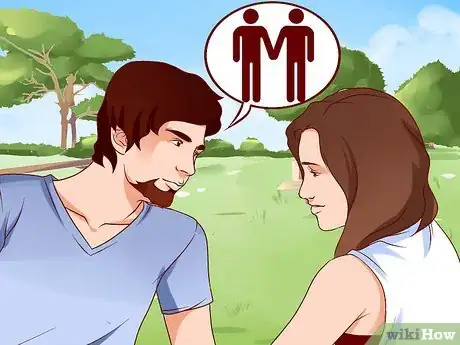
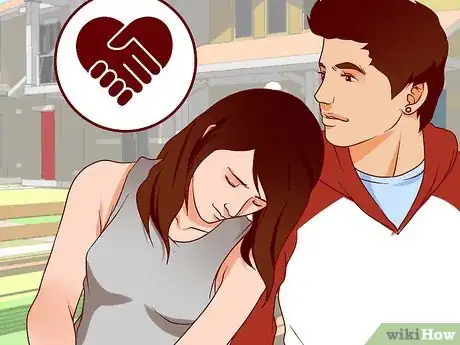





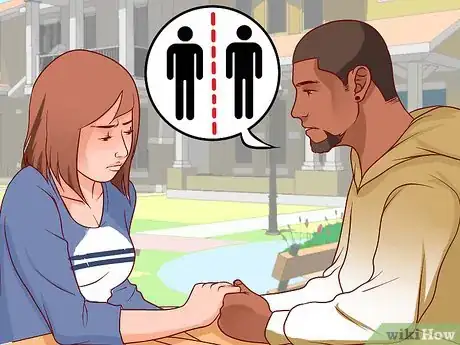




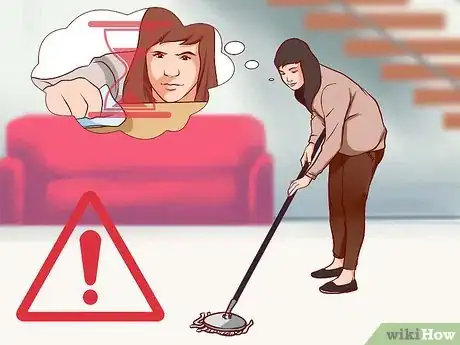
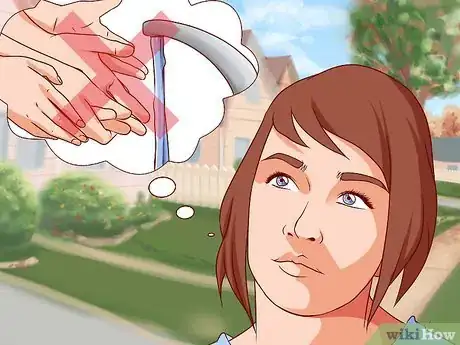
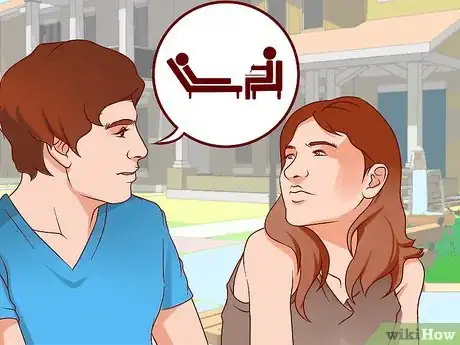
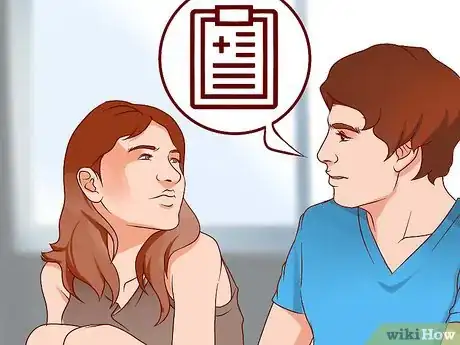

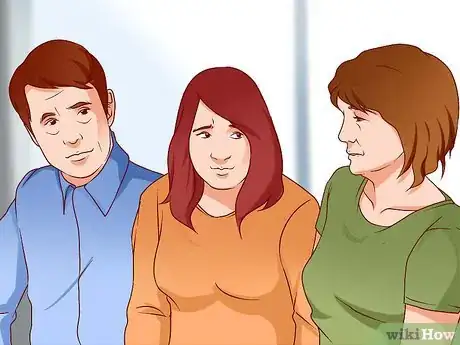
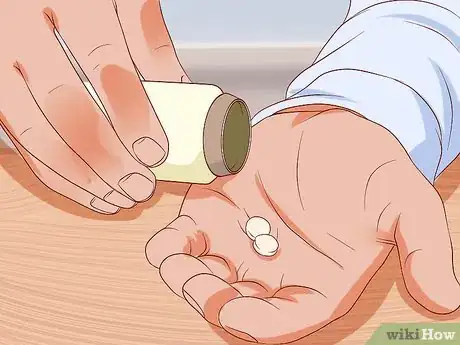
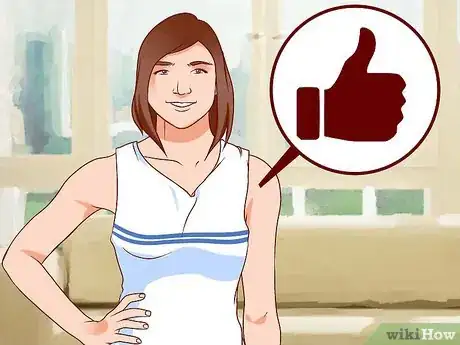



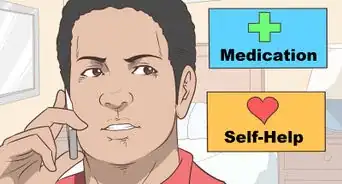

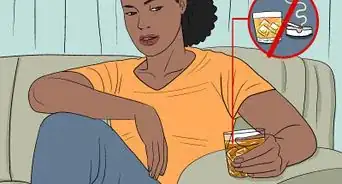
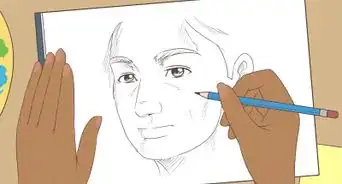
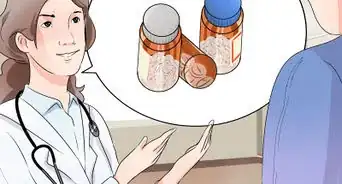
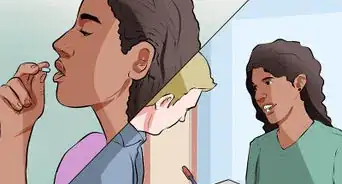
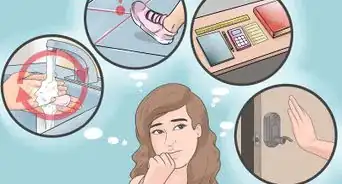
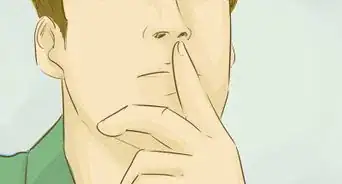
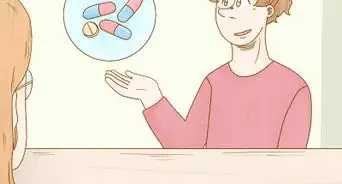
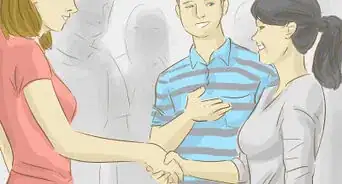









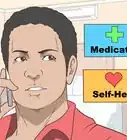






































Medical Disclaimer
The content of this article is not intended to be a substitute for professional medical advice, examination, diagnosis, or treatment. You should always contact your doctor or other qualified healthcare professional before starting, changing, or stopping any kind of health treatment.
Read More...